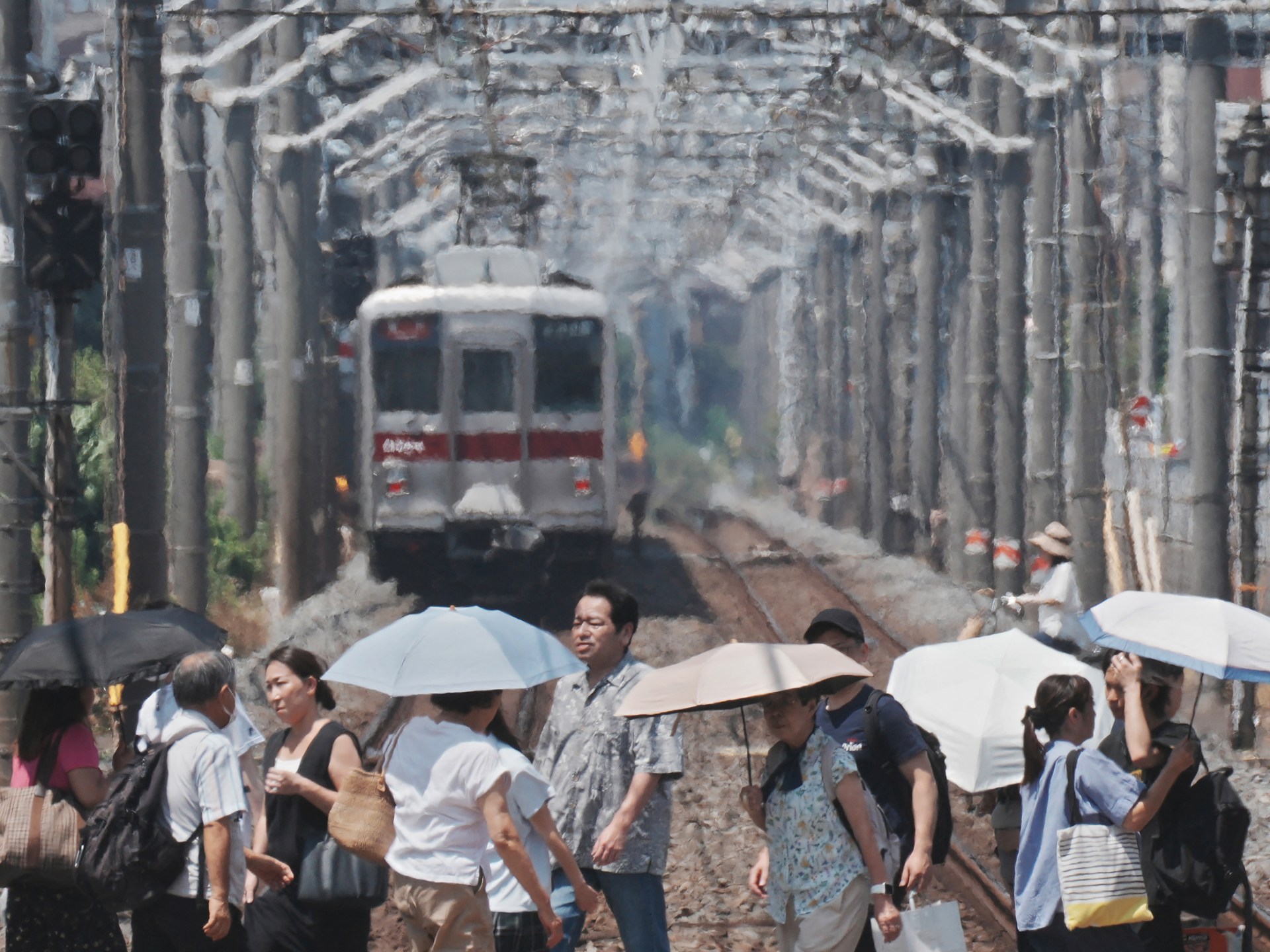According to the Japanese Meteorological Agency, the country’s temperature record set at 41.6 degrees Celsius (106.8 degrees Fahrenheit) and then 41.8C (107.2F), which indicates that the day’s temperature may rise even further.
Isesaki, in the southern Gunma Prefecture of the country’s northern Kanto region, had a scorching temperature record on Tuesday surpassing the previous week’s 41.2C (106.2) record in the western Hyogo region.
The previous high was 41.1C (106F) – seen in 2020 and 2018.
The weather agency reported on Friday that the month’s record high was 2.89C above the average from 1991 to 2020, making it the hottest month since records began in 1898.
The temperature reached 40C (104F) last week in Kyoto, the first observation point since it opened in 1880, and the newest observation point since 2002, according to authorities.
In 44 of Japan’s 47 prefectures, heatstroke warnings were issued.
The summer in Japan last year was the joint hottest on record, equaling the 2023 average, followed by the warmest fall since records began 126 years ago.
As a result of climate change, temperatures have increased significantly around the world, and Japan is no exception.
Experts warn that the beloved cherry trees in Japan are blooming earlier because the climate is warmer and winters are not cold enough to trigger flowering.
In comparison to the typical early October period last year, the famous snowcap of Mount Fuji didn’t appear until the longest period ever recorded.
The meteorological office, which has been collecting such data since 1973, reported that South Korea had its second-hottest July, with an average temperature of 27.1C (80.8).
The hottest July ever recorded in South Korea was in 1994, when the average temperature reached 27.7C (81. 9F).
Farmers complain that the sizzling heat combined with the lack of rain are preventing rice cultivation in Japan, while some dams and paddies across the country are experiencing a water shortage.
There were record-breaking low rainfall in northern regions of Japan, it added, with low precipitation in large areas of Japan in July. Another record-breaking rainy season came to an end in the western regions of Japan about three weeks earlier than usual.
To prevent heatstroke, maintain hydration, and avoid outdoor activities during high summertime, Japanese officials advise the public to seek shelter in air-conditioned rooms.
Japan, which has the second-oldest population in the world after Monaco, is especially vulnerable for the elderly.
According to Copernicus, an EU climate monitor, this year saw the region’s hottest June on record as a result of brutal extreme temperatures sweeping the country in punishing back-to-back heatwaves.
The temperature reached 4C higher in July, according to separate research that found that it was caused by climate change, pushing the thermometer into deadly territory for thousands of vulnerable people and significantly worsening the predicted death toll.
Source: Aljazeera

Leave a Reply